Kent earthquake: why does Britain have so few quakes?
Tremors don't usually pose a serious threat to the UK, but a 6.5-magnitude earthquake is 'technically possible'
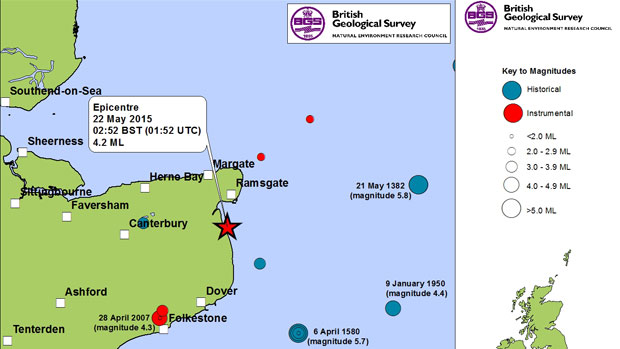
A free daily email with the biggest news stories of the day – and the best features from TheWeek.com
You are now subscribed
Your newsletter sign-up was successful
Kent was shaken, gently, by a 4.2 magnitude earthquake this morning, with shockwaves spreading out from Sandwich to Canterbury, Margate and Southend-on-Sea in Essex.
Some residents of the surrounding area said that they thought that a plane had crashed or a bomb had gone off, the BBC reports. The epicentre of the quake, which struck at 2.52am, was about ten miles underground.
Seismic activity is not unusual in Britain, but it is rarely serious – particularly in comparison with earthquakes elsewhere in the world, such as the two that shook Nepal in recent weeks.
The Week
Escape your echo chamber. Get the facts behind the news, plus analysis from multiple perspectives.

Sign up for The Week's Free Newsletters
From our morning news briefing to a weekly Good News Newsletter, get the best of The Week delivered directly to your inbox.
From our morning news briefing to a weekly Good News Newsletter, get the best of The Week delivered directly to your inbox.
How often does the UK have earthquakes?
Britain is not generally thought of as a country affected by earthquakes, but 20 to 30 tremors are felt by UK residents each year. Nevertheless, they are rarely very strong and most cause no damage.
What was Britain's worst earthquake?
According to the British Geological Survey, Britain's worst recorded earthquake struck the Dogger Bank in 1931. The quake had a magnitude of 6.1, but because it was centred 60 miles offshore it caused only minor damage to buildings along the east coast of England.
A free daily email with the biggest news stories of the day – and the best features from TheWeek.com
The most damaging recorded earthquake took place 47 years earlier when an earthquake hit Colchester, cracking walls and toppling chimney stacks.
How often do they occur?
While magnitude 4 earthquakes occur only every two years or so, and magnitude 5 quakes every 10 to 20 years, scientists believe that a 6.5 magnitude quake is technically possible.
Christchurch in New Zealand was shaken by a slightly less powerful magnitude 6.3 quake in 2011, leaving 185 people dead and at least 1,500 people injured. Rebuilding the city cost the country £20.3bn – almost 20 per cent of New Zealand's annual GDP, The Guardian says.
Why do earthquakes happen in the UK?
Britain is affected by earthquakes due to its "turbulent geological past", the British Geological Survey says. In the UK, the causes of most earthquakes are not always clear, but they include "regional compression caused by motion of the Earth's tectonic plates, and uplift resulting from the melting of the ice sheets that covered many parts of Britain thousands of years ago", the BGS says.
-
 Sepsis ‘breakthrough’: the world’s first targeted treatment?
Sepsis ‘breakthrough’: the world’s first targeted treatment?The Explainer New drug could reverse effects of sepsis, rather than trying to treat infection with antibiotics
-
 James Van Der Beek obituary: fresh-faced Dawson’s Creek star
James Van Der Beek obituary: fresh-faced Dawson’s Creek starIn The Spotlight Van Der Beek fronted one of the most successful teen dramas of the 90s – but his Dawson fame proved a double-edged sword
-
 Is Andrew’s arrest the end for the monarchy?
Is Andrew’s arrest the end for the monarchy?Today's Big Question The King has distanced the royal family from his disgraced brother but critics claim a ‘fit of revolutionary disgust’ could still wipe them out
-
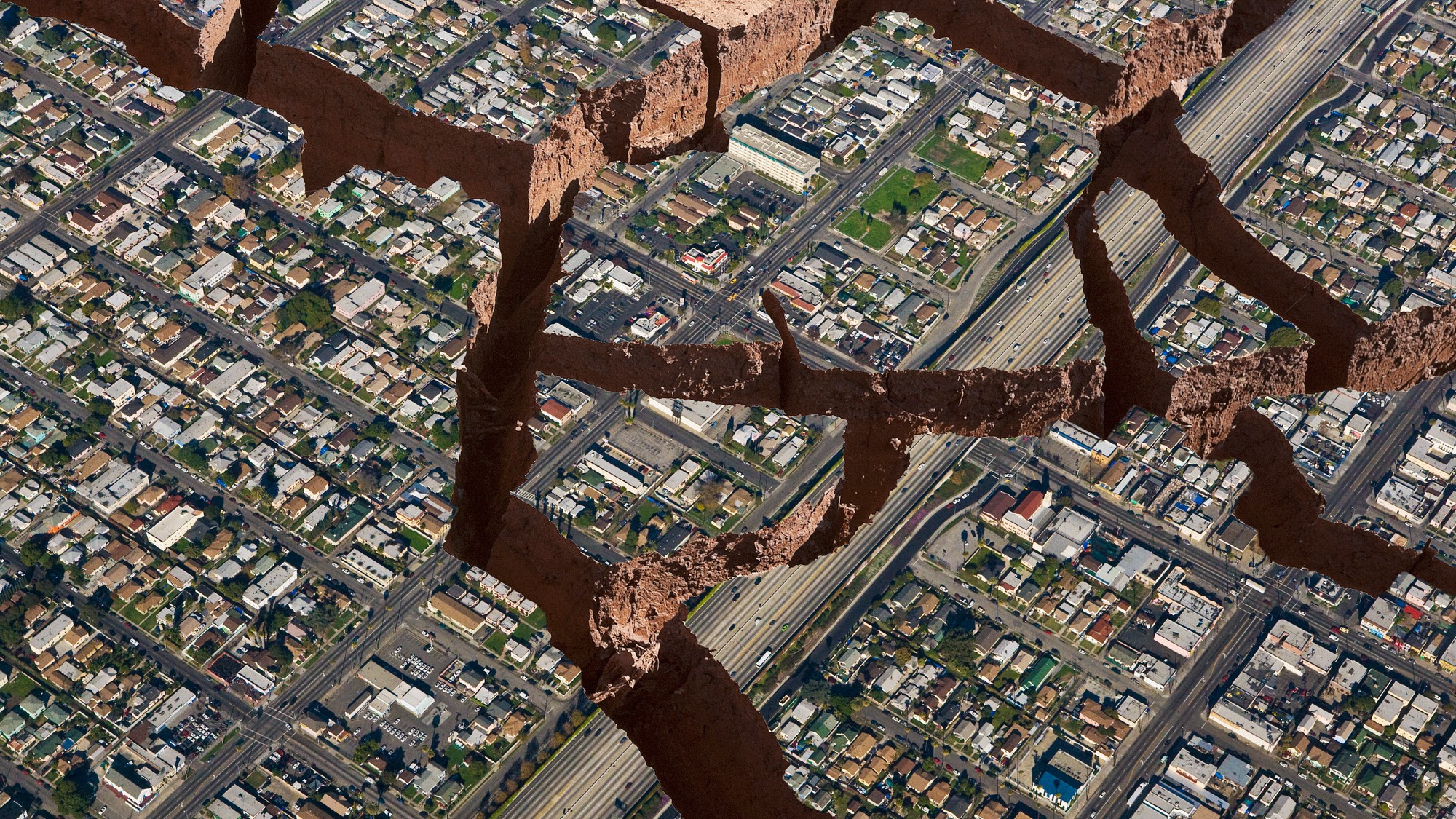 New data could help prepare for 'the Big One'
New data could help prepare for 'the Big One'The explainer Earthquake data had been on shaky ground until a recent study shook things up
-
 How Taiwan minimized earthquake damage
How Taiwan minimized earthquake damageThe Explainer The country was rocked but not rolled
-
 Strong Taiwan earthquake kills 9, injures hundreds
Strong Taiwan earthquake kills 9, injures hundredsSpeed Read At magnitude 7.4, this was Taiwan's biggest earthquake in 25 years
-
 Earthquake rattles Southern California as Tropical Storm Hilary hits
Earthquake rattles Southern California as Tropical Storm Hilary hitsSpeed Read
-
 6.3-magnitude earthquake hits Turkey 2 weeks after 7.8-magnitude caused devastation
6.3-magnitude earthquake hits Turkey 2 weeks after 7.8-magnitude caused devastationSpeed Read
-
 Powerful quake leaves at least 3,800 dead in Turkey and Syria
Powerful quake leaves at least 3,800 dead in Turkey and SyriaSpeed Read
-
 Dozens dead as earthquake hits Indonesia's Java island
Dozens dead as earthquake hits Indonesia's Java islandSpeed Read
-
 6.8 magnitude earthquake hits Mexico days after a 7.6 magnitude
6.8 magnitude earthquake hits Mexico days after a 7.6 magnitudeSpeed Read